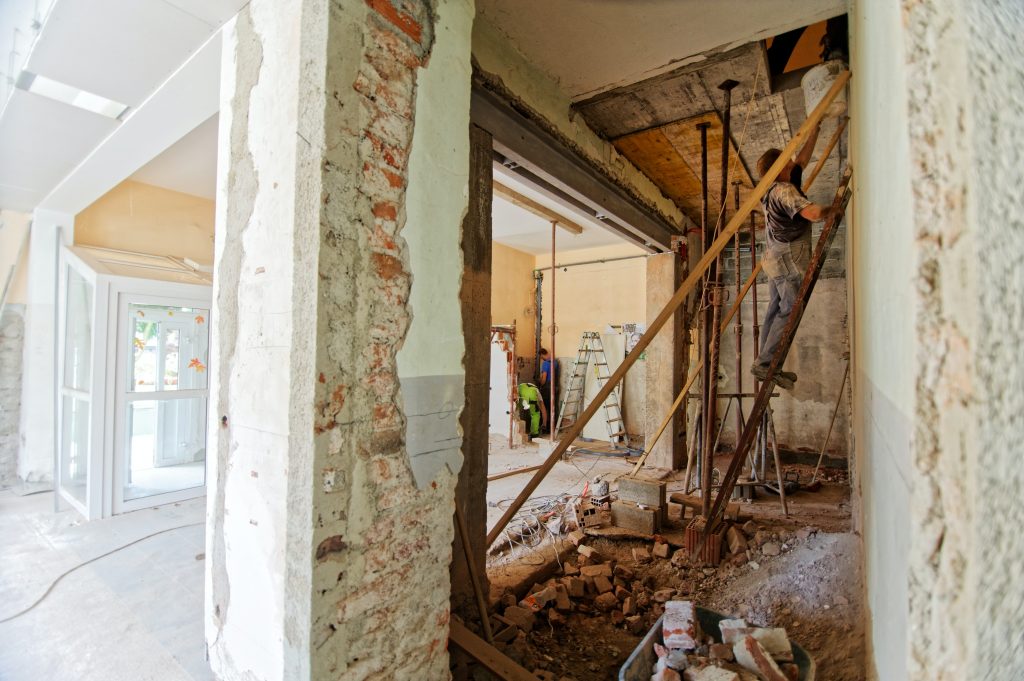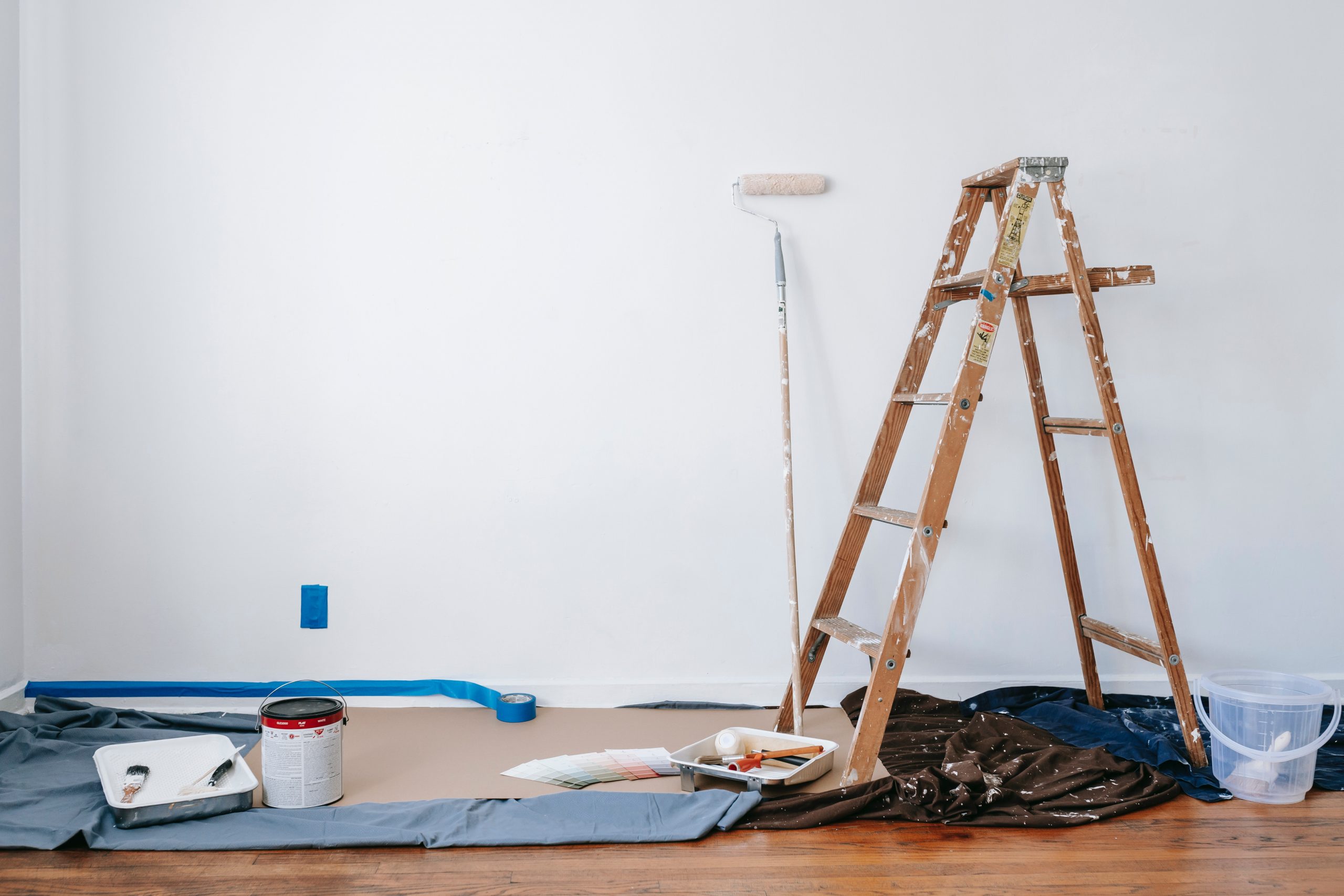Ask Yourself These Questions Before Buying A Fixer Upper House
September 1, 2021
He who asks a question remains a fool for five minutes. He who doesn’t ask remains a fool forever. – Chinese proverb
People have a general perception that remodeling a fixer upper is a fun task all thanks to reality tv. However, reality can turn out to be a complete reversal of what you might be thinking. It looks like a bargain but it can become a long time commitment, which you must prepare yourself for.
Several people make the mistake of buying a fixer upper home solely based on the price. To ensure that you don’t make the same mistake, here are the 7 questions you need to ask yourself before buying a fixer upper.
7 Questions To Decide If Buying a Fixer Upper House is right for you

1. What’s your motivation to buy a fixer upper house?
Your motivation is the most important factor to consider when buying a fixer upper or any other property for that matter.
Are you just eager to build your dream home yourself or are you just looking for an affordable option?
Buying a fixer upper is a great idea for someone who is looking to build their own home without building it from scratch. At the same time, if you think buying a fixer upper is a good idea purely because of the lower price, then there are many other factors you need to consider, which we will be discussing in the next few points.
2. Do you have the time?
HGTV may make buying a fixer upper seem fun and easy but you should know by now that reality TV is hardly real.
Whether you choose to do it yourself or hire someone to take care of the rehabbing work of your fixer upper, it is going to be a time-consuming process. There is a long list of things that you will have to manage, along with your regular job.
Be prepared to go to and from Home Depot or Lowes frequently to buy door knobs, light fixtures, paint, and so on.
If you cannot find time for all this, then buying a fixer upper is not for you.
3. Do you have the knowledge and resources?
Renovating a fixer upper will involve a lot more than just making a few small repairs here and there. You might know a plumber or an electrician who fixes your home problems. However, when it comes to fixing an entire home, you need an army of experts. Plumbers, roofers, flooring experts, pest control, HVAC professionals, and others.
It’s important to be aware of how much you know and need to learn about home remodeling when buying a fixer upper. It’s common for people that don’t know a screwdriver from a hammer to take on this job and end up regretting the decision.
Even if you are planning to hire a contractor to do the job for you, do you have someone you can trust? Finding the right contractor can be an uphill task, especially considering the breakneck competition in the market.
You might find a number of DIY or home fixing videos on the internet, but do you really think they will work?
4. Do you have the money?
Affordability is the number one reason why people choose to buy fixer upper homes, because let’s face it, we tend to gravitate to anything that is less expensive.
Therefore, it is crucial for you to analyze the overall costs involved in remodeling the fixer upper house you plan to buy.
It may not look like it at first but the repairs and renovations needed for a fixer upper could end up costing way more than you ever wanted to pay. From smaller things like water lines or toilet pipe valves to bathtubs, kitchen cabinets, carpeting, roofing, and more.
If you are buying a fixer upper purely because you are looking to save money, then you have to be really careful in assessing every nook and corner of the property. Or else, you might end up spending a lot more on the home than you had initially planned.
5. What’s the location?
As it is with buying any piece of real estate, location is of utmost importance.
For instance, if the house is located in a historic district it will come with its own set of regulations in terms of designs and permits. Besides regulations, permits in such locations take a lengthier time to get approved and are costlier when compared to a regular neighborhood.
While it is true that homes that are architecturally unique and located in a protected neighborhood mean consistent rising property value, it also means that they will require constant care and expenditure.
6. Will it bring any sweat equity?
Sweat Equity is the term used by real estate professionals to express the rise in the value of a home after all the hard work that’s been put into renovating it.
For example, let’s say you bought a fixer upper for $200,000. You then spend an additional $50,000 on renovation and repair work only to find that it is now worth $255,000. You get a gain of just $ 5000 in its value, after the hard work and time investment on the house. In this case, sweat equity is just $5000 (2% of the entire value).
However, it’s ideal for the figure that the figure of sweat equity should be anywhere between 15-20% for a fixer upper purchase to be totally worth it.
If you cannot see that being the case, then buying a fixer upper is not really worth the effort.
7. Are you prepared for it?
Buying a fixer upper can be a great decision if you are a DIY enthusiast.
As you can see, the entire process requires a lot of planning and a meticulous approach. From finding the home to managing time, money, and resources to get the home fixed – it will require a lot of commitment and hard work. At times, it can be taxing to do all this on your own.
Lastly, you need to ask yourself the most important question before finally making a decision – ‘Do you have the patience to do it on your own?’
If you cannot reach an answer, then perhaps buying a fixer upper is not for you.
Final Thoughts
Fixer upper homes come as great bargains for people who contemplate buying a home with a budget. However, the cost doesn’t end after buying the house. You need to be careful not only in inspecting the property, but also in analyzing every aspect of buying the home that needs renovation work. The house could very well end up costing much more than you ever expected to pay but, if the fixer upper only requires cosmetic changes, then you could save thousands of dollars.
Think about it, and then make your choice.
If you’re stuck between buying a inexpensive starter home or an affordable fixer upper, then check out our blog post that goes through the pros and cons of each.

